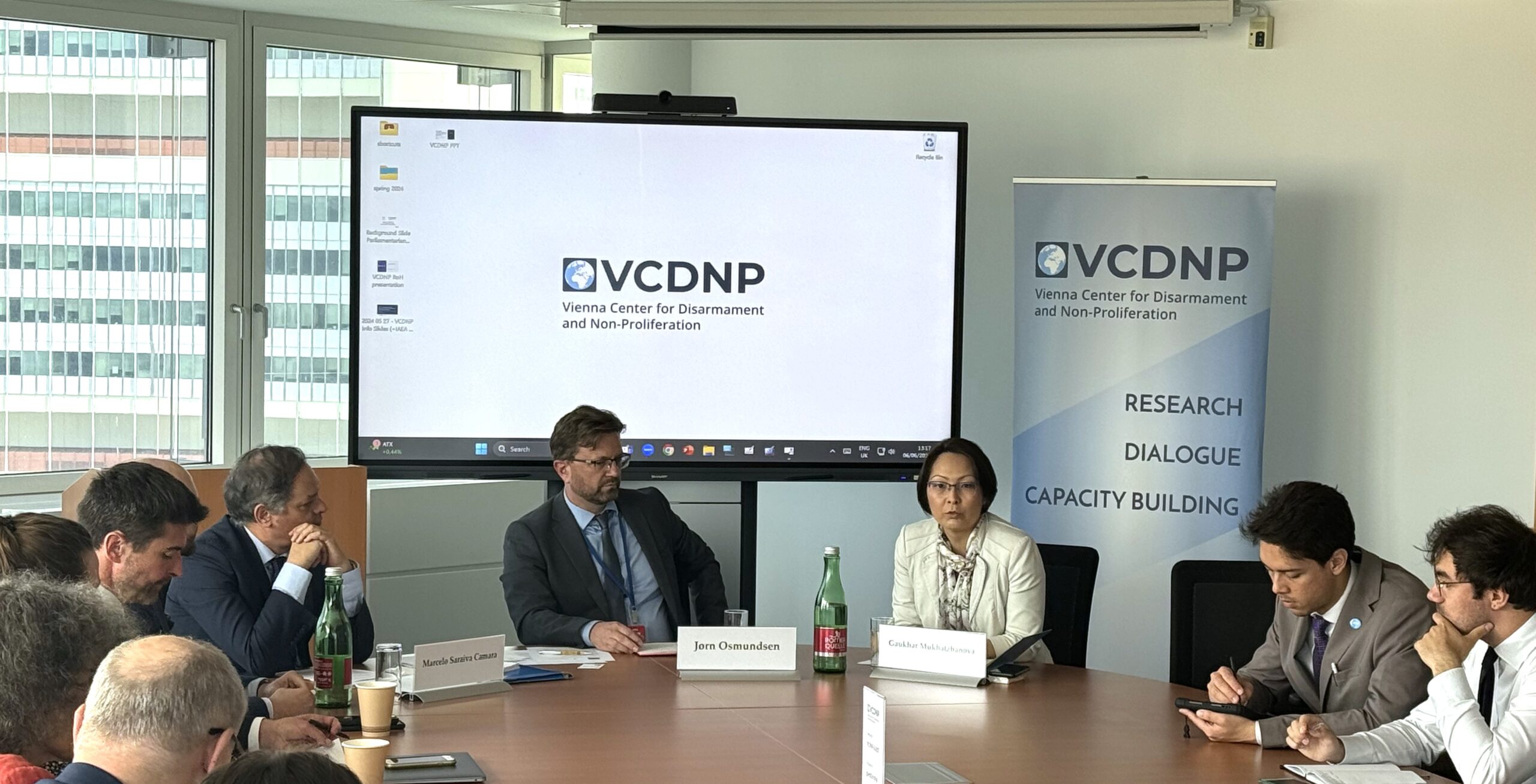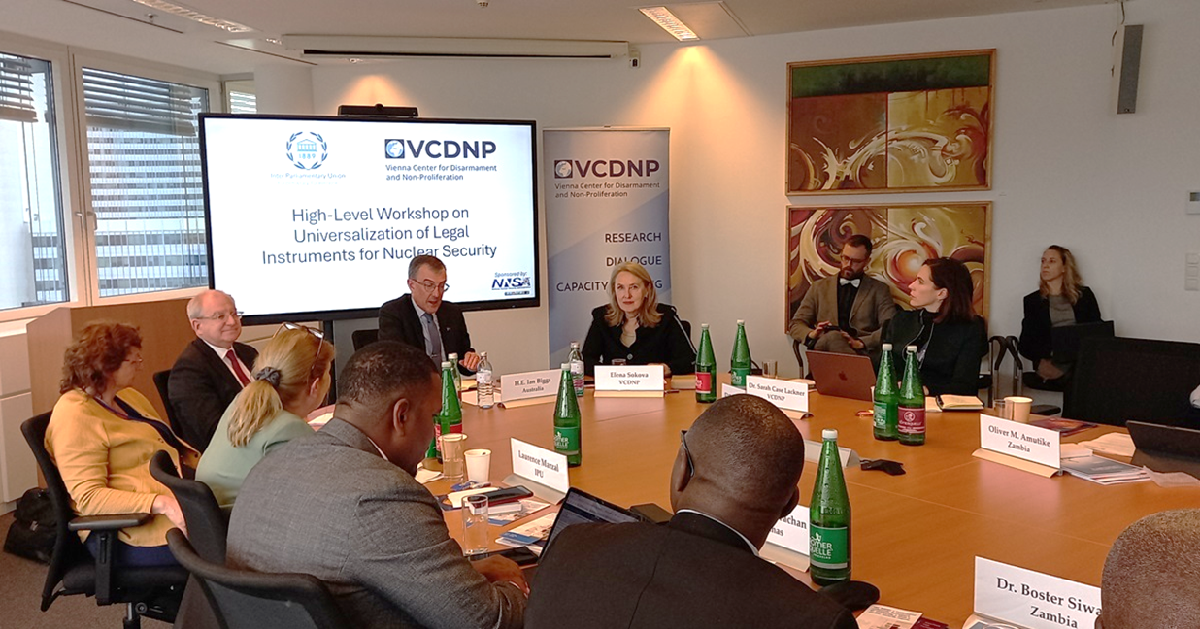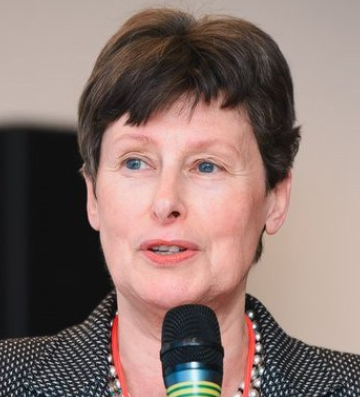
On 6 June 2024, the VCDNP hosted an open consultation on the proposal to create a Group of Scientific and Technical Experts on Nuclear Disarmament Verification (GSTE-NDV) within the UN system, under development by the Governments of Brazil and Norway.
Following nearly two decades of scientific work to resolve technical challenges in disarmament verification by governmental experts and civil society, several states at the 2023 UN First Committee meeting expressed support for further institutionalising these efforts.

Bringing together technical experts from nuclear-weapon States and non-nuclear-weapon States, the Group would be tasked with collecting, preserving, and advancing knowledge on nuclear disarmament verification. Its key focus would be to develop technical tools that could underpin the verification regimes of future disarmament agreements. To enable as many countries as possible to contribute to these solutions, an important element of the Group would be capacity-building to foster disarmament verification expertise around the world.
Complementing consultations with governments and civil society in Geneva and New York, the discussion with members of the Vienna diplomatic and expert communities explored key questions around the composition, mandate, and functioning of the proposed Group.
The proposal for a GSTE-NDV was presented by:
The discussion was chaired by Gaukhar Mukhatzhanova, Director of the International Organizations and Non-Proliferation Programme and Japan Chair for a World without Nuclear Weapons at the VCDNP.
In their opening remarks, Mr. Osmundsen and Mr. Paz Saraiva Camara illustrated the backdrop of the GSTE-NDV proposal. After ten years of technical work on disarmament verification questions, e.g., through the International Partnership for Nuclear Disarmament Verification (IPNDV) and the UK-Norway Initiative on nuclear warhead dismantlement verification, UNGA Resolution 71/67 (2016) brought these efforts into the multilateral system, leading to the establishment of two successive Groups of Governmental Experts. Their outcomes underlined the importance of science diplomacy as a trust-building exercise for addressing the nuclear weapons issue, especially in times without political progress towards disarmament.
UNGA Resolution 78/239, adopted in December 2023, requested the Secretary General to seek the views of Member States on further anchoring this work in the UN system by establishing a GSTE-NDV. With the results expected in June 2024, Brazil and Norway are collecting further input from governments and experts for a resolution at the 2024 First Committee meeting that would create such a Group.
Mr. Osmundsen and Mr. Paz Saraiva Camara underlined that integrating nuclear disarmament verification into the UN system would add legitimacy and visibility to this area of work and facilitate contributions from more Member States. In this spirit, Brazil and Norway chose a flexible approach to their proposal, encouraging the widest possible participation in shaping the GSTE-NDV. They also stressed that advancing verification work was neither a substitute nor a prerequisite to nuclear disarmament.
While the proposal draws inspiration from the Group of Scientific Experts (GSE) that supported the development of the Comprehensive Nuclear-Test-Ban Treaty’s verification regime, Mr. Osmundsen and Mr. Paz Saraiva Camara highlighted that the GSTE-NDV would not design a specific verification regime, but rather develop approaches to verification challenges that may arise in future disarmament negotiations.
The discussion raised questions around the composition of the Group, where it should be located, how it would be funded, and how it may interact with the Scientific Advisory Group established by the Treaty on the Prohibition of Nuclear Weapons (TPNW), which has a mandate to counsel on verification issues.


